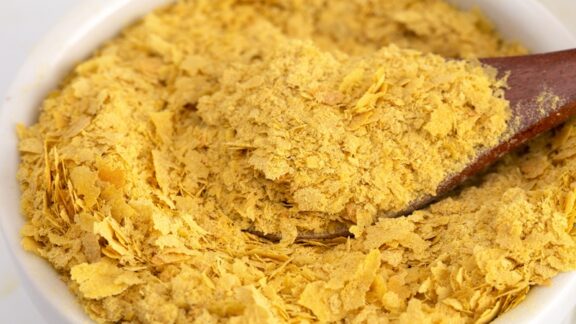Kristen N. Smith, Ph.D., RDN, LD, of Environmental Nutrition discusses nootropics, substances used to enhance brain function, including L-theanine, ginkgo biloba, and ginseng. We also look at the use of cocoa flavonoids to boost brain health.
If you aren’t familiar with the term nootropic, you can expect to hear it more in the coming years.
Nootropics are substances that exert a beneficial effect on a person’s brain function, specifically in healthy people (versus those with specific medical conditions). Referred to as “cognitive enhancers,” “smart drugs,” “memory enhancers,” or “brain boosters,” they are intended to support mental performance.
The term “nootropic” stems from a chemical that meets specific conditions – enhancing memory, helping support brain function, and protecting the brain with relative safety. Today, the term is used more broadly and may include naturally occurring or synthetic “cognitive enhancers.”
Generally, nootropics are within two major categories: dietary supplements and drugs (both prescription and over-the-counter options). The search for boosted brain power through natural and synthetic nootropics has expanded dramatically. Global sales for nootropics are expected to reach $6.29 billion by 2028, according to Verified Market Research.
Book review: ‘Keep Sharp: Build a Better Brain at Any Age’
Ingredients in nootropics include food components, herbs, botanicals, dietary ingredients, and pharmaceuticals. Certain dietary supplements and ingredients contain nootropic properties and we will review three of the most commonly consumed ingredients that may contribute a cognitive benefit.

- L-theanine. Sourced naturally from green tea, L-theanine is an amino acid with a wide array of associated neurological and cognitive benefits. Many studies investigating the effects of L-theanine have reported associated improvements in relaxation, increased attention performance, improved reaction time, and improved sleep.
- Ginkgo biloba. Ginkgo biloba is an herb that has potential benefits in improving blood flow and eye health, but much of the attention around this nootropic is that it may exert a positive effect on cognitive function, anxiety, and may be useful in stress management.
- Ginseng. Ginseng is one of the oldest adaptogenic and nootropic herbs with history dating back to traditional Chinese medicine. American ginseng (Panax quinquefolius) and Asian ginseng (Panax ginseng) are the two most popular varieties of ginseng, and both may be associated with immune benefits. Ginseng may also help with heart disease, blood pressure, and more.
- Cocoa. “Eating high flavanol cocoa can improve blood flow to the brain in young adults,” says Healthline. “Cocoa flavanoids may also help maintain cognitive function in older adults with mild cognitive impairment and reduce the chance of progressing to dementia.” The stimulant substances in cocoa, including caffeine and theobromine, can may also improve short-term brain function. However, more research is needed to confirm these benefits.
Related: The gut-brain connection matters
As always, Envirgonmental Nutrition recommends discussing any and all supplements with your health care professional prior to making changes to your medicinal or supplemental regimen.
Environmental Nutrition is the award-winning independent newsletter written by nutrition experts dedicated to providing readers up-to-date, accurate information about health and nutrition in clear, concise English. For more information, visit www.environmentalnutrition.com.
© 2022 Belvoir Media Group, LLC. Distributed by Tribune Content Agency, LLC.




